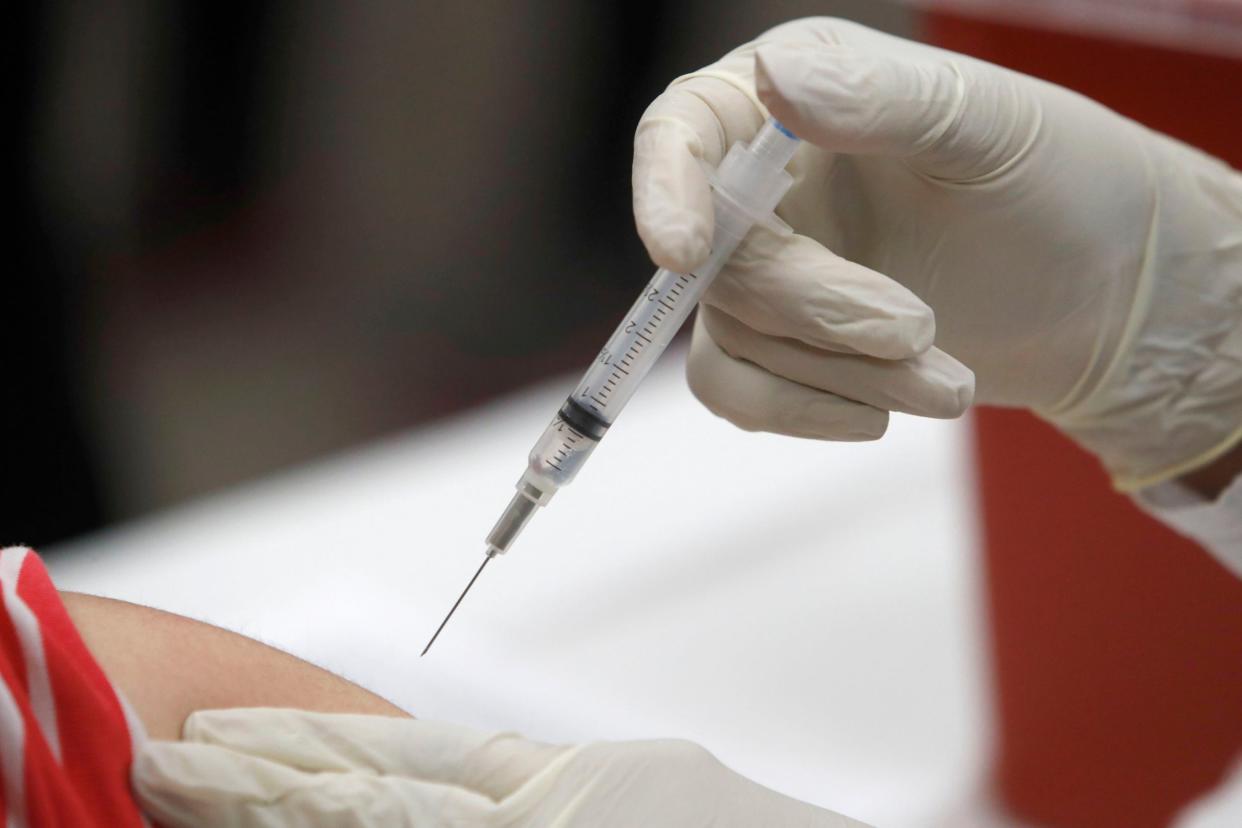Mass coronavirus vaccinations not expected until mid-2021 as WHO warns ‘don’t just sit there waiting’

Widespread coronavirus vaccinations are not likely until the middle of next year, the World Health Organisation has warned, as high profile vaccine trials continue to raise hopes.
Oxford University’s collaboration with AstraZeneca has yielded positive results so far, and last month Russia became the first country in the world to approve its own Covid-19 jab.
But offering a dose of reality, WHO spokeswoman Margaret Harris said none of the candidates in advanced clinical trials has so far demonstrated the 50 per cent effectiveness sought by the health body.
Addressing a briefing in Geneva on Friday, Ms Harris said: "A lot of people have been vaccinated and what we don't know is whether the vaccine works.
"At this stage we do not have the clear signal of whether or not it has the level of worthwhile efficacy and safety."
Moscow granted regulatory approval to its vaccine after less than two months of human testing, prompting Western experts to question its reliability.
Watch video below
While on Thursday, US public health officials said a Pfizer vaccine could be ready for distribution by the end of next month.
However, pouring water on overly-optimistic projections, Ms Harris stressed: "We are not expecting to see widespread vaccination until the middle of next year."
Describing a vaccine as a “global public good” she insisted one “must be provided in every part of the world”.
“We all need to share vaccine data, compare it, use it properly and scientifically to ensure we have got not just vaccines but the right strategies,” she said.
She also quashed suggestions that a vaccination would be a silver bullet for the pandemic, urging: “Don’t sit there waiting for the vaccine, the vaccine – when it comes will be another tool in the armoury.”
"It is unlikely that we will see mass vaccinations against #COVID19 before the middle of the next year," says Margaret Harris, a spokeswoman for the @WHO.#coronavirus #vaccines pic.twitter.com/ibSIssU9JT
— UN Geneva (@UNGeneva)
Her comments came hours after the UN children's agency UNICEF announced plans to produce unprecedented quantities of Covid-19 vaccines in 10 countries over the next two years.
UNICEF's role is part of a vaccine allocation plan – known as COVAX and co-led by the WHO – that aims to buy and provide fair access to the shots across the world.
The focus is on first vaccinating the most high-risk people in every country such as healthcare workers.
So far, 76 wealthy nations committed to joining the COVAX effort, which aims to procure and deliver 2 billion doses of approved vaccines by the end of 2021.
UNICEF said 28 vaccine manufacturers had committed to “collectively producing unprecedented quantities of vaccines over the coming 1-2 years."
But drug makers have signalled that the projections are "highly dependent on, among other things, whether clinical trials are successful, advance purchase agreements are put in place, funding is confirmed, and regulatory pathways are streamlined."
Read more
Confusion as UK split over travel quarantine as latest R rate due-LIVE
GlaxoSmithKline shares up as drugmaker eyes Covid vaccine approval
Oxford Biomedica shares soar after vaccine boost from AstraZeneca
Rush for Covid-19 vaccine 'could make pandemic worse', scientists warn
Virus vaccine hope as ministers fast-track mass rollout plan

 Yahoo News
Yahoo News 
